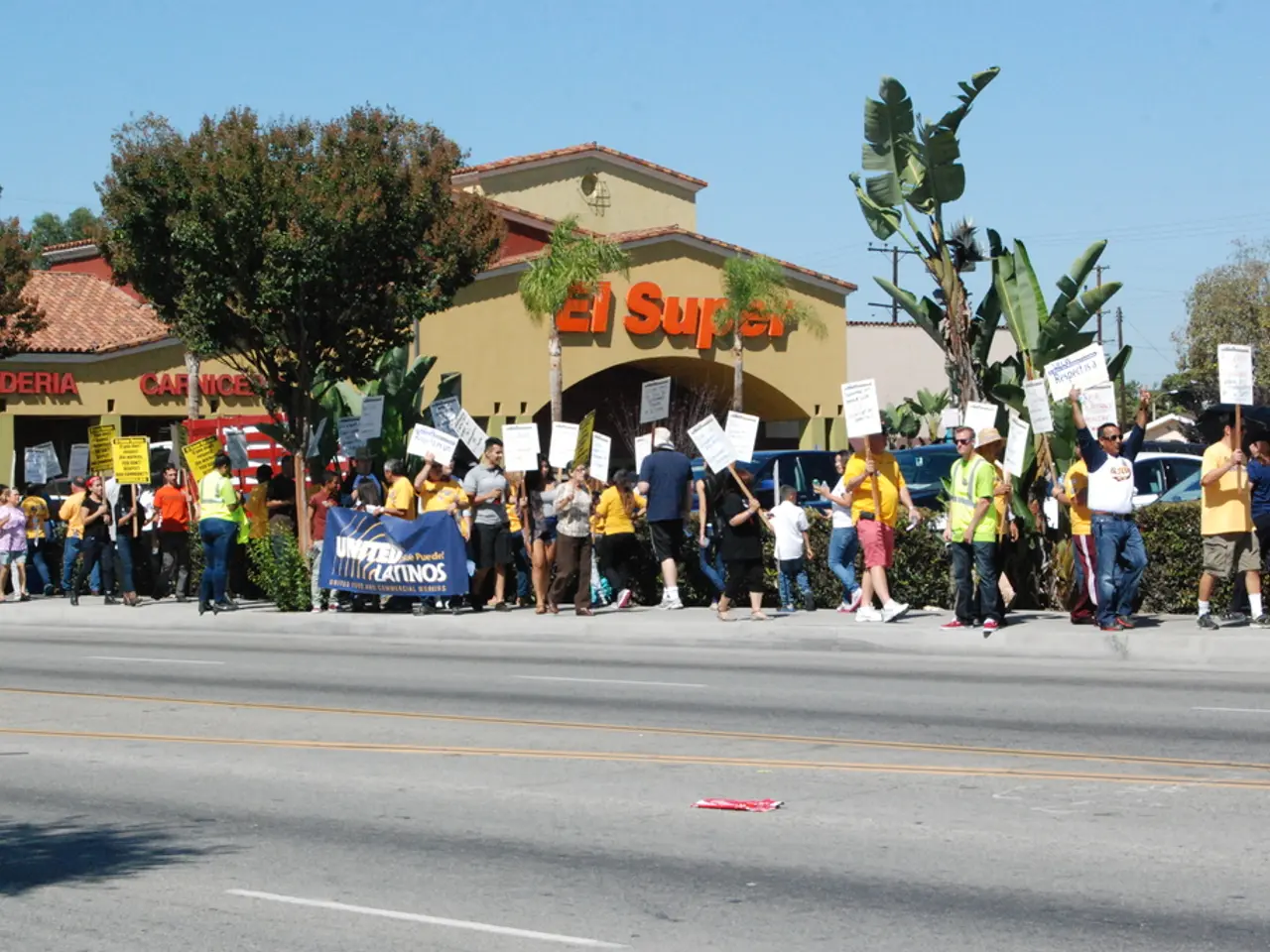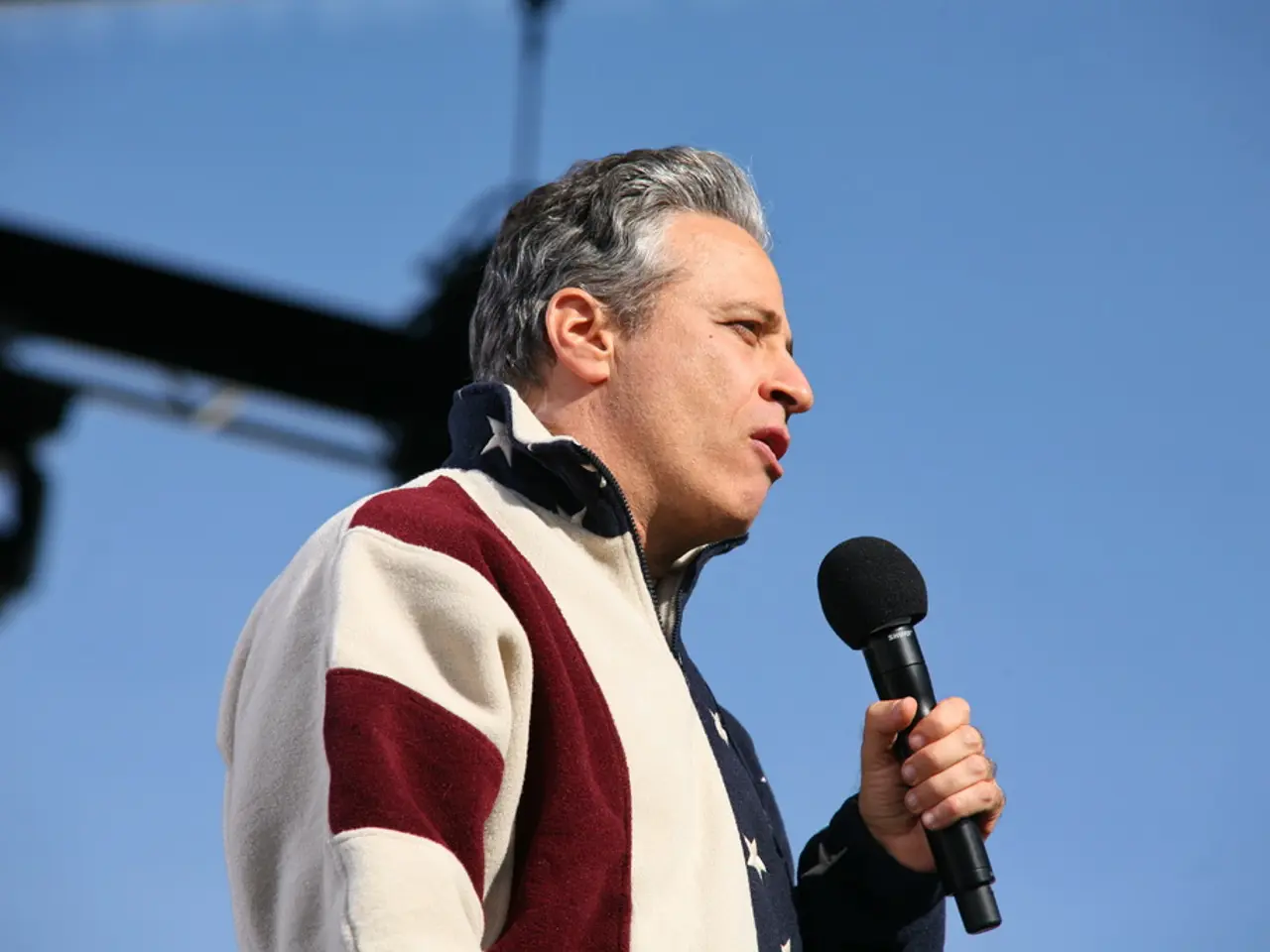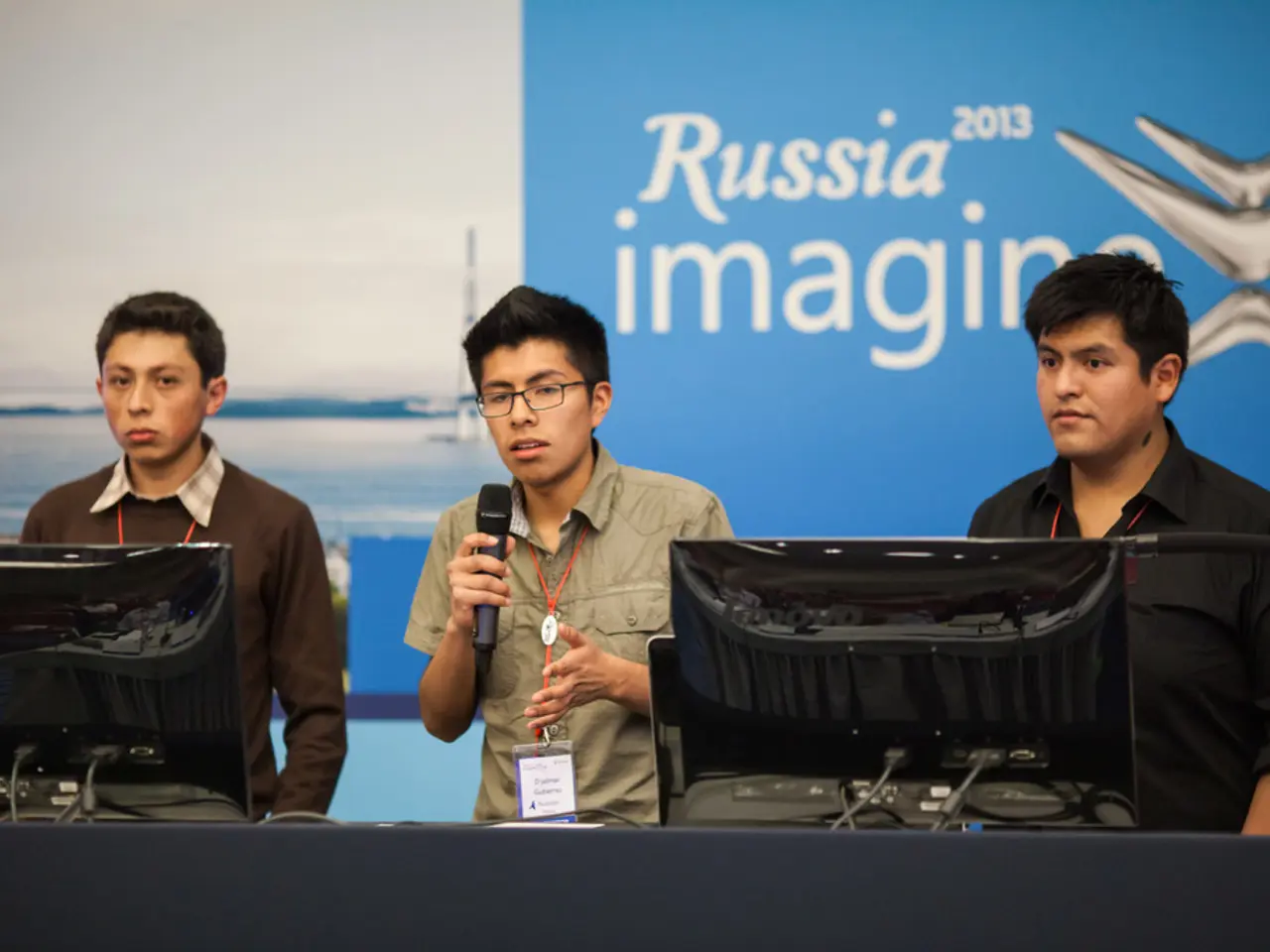Netanyahu's governing partner in Israel has departed, causing him to lose his coalition.
In a move that could potentially reshape the political landscape of Israel, the ultra-Orthodox Shas party has announced its resignation from all government positions. This decision, driven by the party's demand for exemptions from military conscription for ultra-Orthodox men, has left the government with a slim majority of 61 seats in the 120-seat Knesset.
Prime Minister Benjamin Netanyahu, who has lost another coalition partner, now faces pressure to address the concerns of the ultra-Orthodox community. Failure to satisfy these demands could lead to further political instability.
The Shas party's resignation follows a long-standing dispute over a law that was supposed to gradually conscript more ultra-Orthodox men for combat duty. This dispute caused the collapse of the ruling coalition in 2018. However, the government has failed to pass a new law to cement this special status for the ultra-Orthodox.
The issue is a contentious one, with many Israelis feeling that exemptions for ultra-Orthodox Jews are unfair. On the other hand, many ultra-Orthodox Jews view military service as a threat to their religious lifestyle. Strictly religious women are only recruited on a voluntary basis in Israel.
The Supreme Court ruled in the summer of 2024 that ultra-Orthodox men must be drafted into the military. However, most affected individuals are currently ignoring draft notices sent by the army.
Netanyahu will likely use the upcoming three-month summer recess of parliament to resolve the crisis with the ultra-Orthodox parties. The two ultra-Orthodox parties do not intend to topple the government.
The potential outcomes of this crisis are numerous. If Shas were to eventually leave the coalition, Netanyahu's government could fall below the 61-seat threshold required for a majority. This scenario could lead to early elections, potentially being Israel's sixth election in just over five years.
Alternatively, Netanyahu might seek to reconfigure his coalition or negotiate with other parties to ensure a stable majority. The crisis highlights the ongoing debate over military conscription for ultra-Orthodox men, with the ultra-Orthodox parties pushing for legislation to maintain their exemptions.
The situation underscores the complex interplay between religious and political interests in Israel. The ultra-Orthodox community's influence on government policy could be affected by the outcome of this crisis.
Opposition leaders argue that the government has lost legitimacy due to its handling of the crisis. This perception could increase public dissatisfaction with the current administration. The controversy may lead to increased public scrutiny of how religious exemptions interact with national service obligations, potentially leading to broader societal discussions about equality and fairness in military conscription.
In conclusion, the Shas party's actions have heightened tensions within the Israeli government and society, emphasizing the delicate balance between religious interests and political stability. The next few months are likely to be crucial in determining the future direction of Israeli politics.
- The prime minister, Benjamin Netanyahu, now faces increased pressure to address the concerns of the ultra-Orthodox community regarding military conscription, as a failure to satisfy their demands could lead to further political instability, similar to the collapse of the ruling coalition in 2018.
- The ongoing dispute over the conscription of ultra-Orthodox men into the military has become a key policy and legislation issue, sparking debates in politics, general news, and war-and-conflicts as many Israelis question the fairness of these exemptions while the ultra-Orthodox community views military service as a threat to their religious lifestyle.
- The Shas party's resignation and the potential outcomes, such as early elections or a reconfigured coalition, have put the spotlight on migration within the Israeli political landscape, highlighting the complex interplay between religious and political interests, and potentially leading to broader societal discussions about equality and fairness in military conscription.








